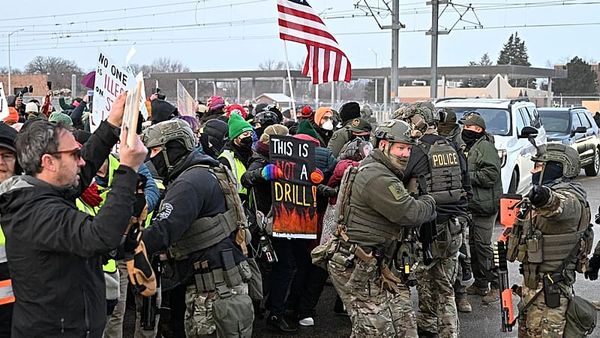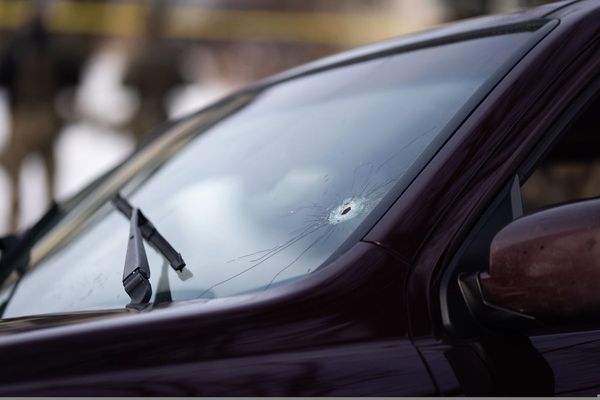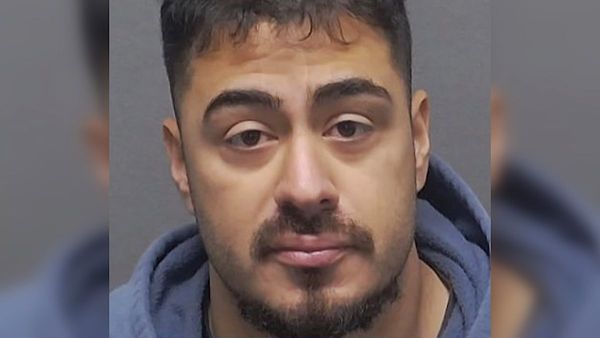
It is lunchtime in Los Angeles, and Anthony Hopkins is having a dizzy spell. “I’m lying down on the bed,” he says, calling from home. “I’m looking at the sun shining on the Pacific ocean.” There are worse views to contemplate while you collect yourself.
His voice is soothing, his halting delivery prone to the odd acceleration whenever the memories start flowing. Unmistakable is that mixture of ebbing sadness and defiant resolve familiar from more than 50 years of performances, but most of all from his towering turn in The Remains of the Day as the repressed wartime butler too dutiful and deluded to register his employer’s fascist sympathies. Hopkins is a warmer presence, altogether less blighted, though waves of melancholy still whoosh in and out of his conversation. It is his custom to dispel them with some stoic statement or other. “Just get on with it,” he tells himself at one stage, “stop kvetching.” But they always come back.
He turns 85 next month, and has lived in the US on and off since the mid-1970s. The country has been on his mind even longer. He would hear cataclysmic news from its shores, and think to himself: “Oh God, what a place!” His reminiscences are apt to resemble both reverie and shopping list. “Kennedy assassinated. Oswald killed a few days later. Before that, the standoff between Kennedy and Khrushchev. I was an actor in provincial rep. My father said, ‘If the bomb drops, you won’t know much about it. It’s us who will have to suffer the fallout here in Wales.’ A few weeks later I went to see him. He said, ‘That was nothing, was it? In 1939, when you were a baby, Neville Chamberlain declared war against the mightiest military machine ever. Six years later, Hitler blew his brains out.’” His point? “We survive.”

The topic is germane to the film that has occasioned our conversation today: Armageddon Time, James Gray’s autumnal, autobiographical drama about a Jewish family in Brooklyn at the dawn of the 1980s. Hopkins plays Aaron Rabinowitz, maternal grandfather to 11-year-old Paul (Banks Repeta). He brings him gifts, including a rocket which they launch together at Flushing Meadows. The kid puts on a toff’s voice (“Thank you, my good man”) while the old fellow talks like an after-school cartoon (“Yabba-dabba-doo!”).
The script was originally written about Gray’s paternal grandfather; Robert De Niro was in talks to play the part. When that plan fell through, Gray reshaped the role in the image of his other grandfather, and Hopkins sprang immediately to mind. The title alludes to the apocalyptic bent of the incoming president, Ronald Reagan, as well as to the Clash song Armagideon Time but it also foreshadows the existential dread that pervaded most of that decade and has lately returned in spades. Several members of the Trump family, played by actors including Jessica Chastain, make an appearance.
Given the state of the world today, does Hopkins consider the film to be timely? “Did I what? Timely? How do you mean?” Before I can explain, he is off on a different tack: “Let me put it this way. I loved James’s vision of the past. America has been through so many shifts we lose track of them. Memory plays false with you. It’s never accurate and not exactly a lie. You only get a kind of dream sequence. But I’ve got a pretty good memory.” How did he feel when Reagan became president? “Oh, I can’t remember that. It was so long ago.”

He was also furiously busy, as ever. One of the projects he was preparing for at that time was the lead in the 1981 BBC production of Othello, directed by Jonathan Miller. Hopkins made a dubious sort of history as the last white actor to play the part on British television. “Couldn’t do that now,” he says, alluding to blackface. Bob Hoskins was his Iago. “Wonderful Bob! When he came in, his accent sounded very refreshing. Then it became clear he hadn’t read the whole script.” Hopkins does an uncanny impression of his cockney co-star: “‘Jesus, are these all my lines? These are the verbals? I’m in big trouble, Tone!’ I told him, ‘You’d better get learning them.’ He was terrific.”
When he thinks about arriving in the US in the early 1970s, it is Watergate that looms most clearly in his mind. He was in London at the time, getting ready to go to New York to appear on stage in Equus. “I listened to all this news from America and I thought: ‘God, I’m going to be there soon.’ When I arrived, the joke shops were selling Nixon masks. I stayed at the Algonquin. I can remember looking at the light, the sky, thinking: ‘This is America!’ I don’t know what it was. A light peculiar to that country. I felt a nostalgia for it somehow. We often talk about the good old days but, oh, I don’t know. Good old days, bad old days, life goes on. I just came out here and stuck around. I’m a drifter really.”

In among the numerous real-life figures in his filmography (including Picasso, Hitchcock and Pope Benedict XVI), he has played both Nixon (in Oliver Stone’s 1995 film) and Hitler (in the 1981 TV movie The Bunker), earning an Oscar nomination for the former and winning an Emmy for the latter. “A producer, young guy, came up to me on set and said: ‘Can you make Hitler less human?’ I said, ‘No, because he was human.’” Hopkins was surprised to be offered Nixon. “Oliver told me, ‘I’ve read interviews with you, and I think you can play him.’ I said, ‘What, you mean I’m nuts and paranoid?’ He said, ‘Yeah, all that stuff.’ I jumped in with both feet.”
As well as Stone, he has also been directed by Steven Spielberg (in Amistad), David Lynch (The Elephant Man), Francis Ford Coppola (Bram Stoker’s Dracula), Julie Taymor (Titus) and Woody Allen (You Will Meet a Tall Dark Stranger). What does he look for in a director? “The ones who are smart and don’t pretend to be God. They’re working people like anybody else. I don’t go on set to try to dominate. My way is to say, ‘Can I try this? Does that work for you?’”
His wife, Stella, directed him a few years ago as a psychiatrist in her film Elyse. “Bossed me about, she did,” he chuckles. Special fondness is reserved for the late Jonathan Demme, who cast him in The Silence of the Lambs as Hannibal “the Cannibal” Lecter; Hopkins’ performance brought him the first of his two best actor Oscars, as well as two further bites of the cherry in Hannibal and Red Dragon. “I don’t know why Jonathan cast me but he trusted me. He would fall about laughing because he thought I was outrageous.” It was the actor’s idea for Lecter to be already standing in his cell when the FBI trainee Clarice Starling (Jodie Foster) first approaches him. “He can smell her, you see. I told Jonathan and he said: ‘Oh, my God. You’re really strange, Hopkins!’”
He once described himself as the “troublemaker” on the set of the 1998 fantasy-drama Meet Joe Black, co-starring Brad Pitt. “Marty Brest, the director, lovely man, he would do take after take after take,” he explains. “I never knew why. I said to him one day, ‘I don’t have much longer to live. Can we finish the scene?’ It was crazy. He’d say: ‘One more.’ And I’d say: ‘No, I’m going home now, I’m tired.’ Brad may have thought I was being a bit difficult. But I was convinced we’d never get to the end.” Many audiences felt the same way. “It does go on, doesn’t it?”

Hopkins’ mind hops all over the place as we speak, alighting on childhood memories of accompanying his father on his bread round, and then zooming bang-up-to-date to Armageddon Time again. One word he keeps repeating, though, is “easy”. Making The Father, Florian Zeller’s devastating story of the mental collapse of a man with Alzheimer’s, was “dead easy”, he says, despite the subject matter. “I didn’t do anything, really. I said yes to it, and Olivia Colman became my daughter.” He must have done something else to earn his best actor Oscar. “Well, I try not to muddle it up by interfering. You make sure the catering is good, find yourself somewhere comfortable on set and don’t bump into the furniture. Acting gets easy as you get older. You stop getting twisted up by it.” He also appears briefly in The Son, Zeller’s forthcoming follow-up, in which he has one scene of singular vileness.
He hasn’t watched Armageddon Time yet and is in no rush to return to the cinema. “This Covid business is back again. I’m not hiding away, but at my age I don’t want to risk it.” He is at the piano each day (“I’ve been playing this morning, some Rachmaninoff”) and often paints in his studio; his art has been exhibited all over the world. “I’ll probably do some this afternoon,” he says brightly.
Talking about Armageddon Time today, though, has allowed all sorts of memories to rush in as he lies on his bed gazing at the ocean. “The man I play is very much like my own maternal grandfather,” he says. “He and I were awfully close. He gave me a great sense of confidence to get on with life.” It was while shooting that scene in Flushing Meadows, which doubles as an unspoken goodbye between Paul and his grandfather, that Hopkins felt his own past to be vividly present. “There was that melancholy American light in the sky. I was wearing my coat because my character was dying. And I thought: ‘This is my grandfather.’”
What did he look like? “He was no fashion model but he had a certain vanity about him. Shirt and tie. He used to look at himself in the mirror.” The last time Hopkins saw him was in 1961. “We had a drink together in the Grand hotel in Port Talbot. I was about to go off to Rada, full of pep and vinegar – I’d won a scholarship and all that. I got up to leave, and my grandfather said, ‘Why don’t you come for lunch? I’ve got some nice fish cooking.’ I said, ‘No, I’ve got to go.’ I left and turned around, and he waved at me from the table. It was a sunny day and that was the last time I saw him.”
He permits the image to linger. “He died a few months later and to this day I feel regret. I think, ‘Why didn’t I have lunch with him?’” Has he settled on an answer? “Ah, I was too busy. Too young. And now he’s gone. Those memories do stay with you. We don’t realise the pain in people’s lives. Old age and all that.” Then, as surely as the tide of melancholy has come in, he ushers it back out again. “I’m just grateful I’m alive and they still give me jobs to do. Keeps me out of trouble, eh?”
• Armageddon Time is in cinemas now







